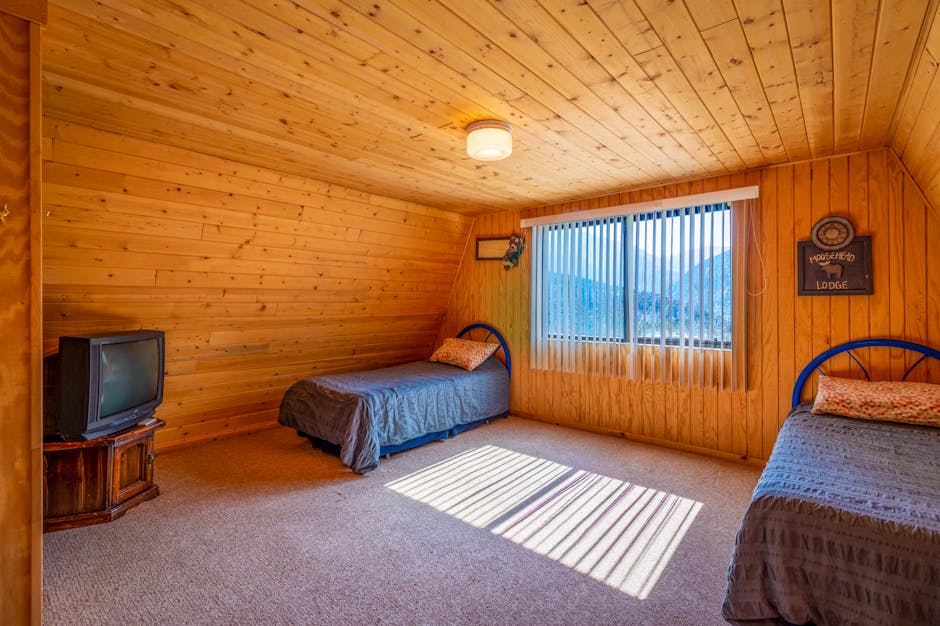Table of Contents
Right, so you wanna chew the fat about these hospitality management outfits, eh? The big players, the ones running the show behind the scenes, or at least trying to, as we barrel headfirst into 2025. It’s a proper circus out there, always has been, but now it’s got lasers and robots and folks talkin’ about “guest journeys” like it’s some kind of pilgrimage. Always gets a chuckle out of me, that.
See, what I’ve learned watching this game for twenty-odd years, it ain’t always the flashiest name that gets the job done. Sometimes it’s the quiet ones. Other times, it’s the ones with the deepest pockets, just buying up everything that moves. This whole hospitality thing, it’s just people looking for a decent bed, a clean bathroom, and maybe a smile from someone who ain’t completely knackered. Anything else, well, that’s just window dressing.
What they actually do, these big firms.
People ask me, “What exactly does a hospitality management company do?” They look at me like I’m supposed to pull a rabbit out of a hat. My answer? They’re the folks hired by the hotel owner – the guy who actually owns the bricks and mortar, the land, the whole shebang – to make sure the place runs. Or, often, to make sure it runs better. Sometimes, it’s just to make it run at all. Think of it like this: you own a prize-winning racehorse, but you ain’t no jockey. You hire a trainer, right? Someone who knows how to feed it, how to ride it, how to get it across the finish line. That’s what these management companies are supposed to be. They handle the staff, the bookings, the marketing, the cleaning schedules, the revenue, the broken toilets, the complaints about the coffee machine. All the grubby details that make a hotel actually work, or completely fall apart.
Used to be, a lot of the big brands – the ones with their names on the sign, like those big Hilton joints or a Marriott, say – they managed most of their own places. Their own flag, their own staff, their own rules. Still do a fair bit of that, of course. But then this other beast started growing, these third-party managers. Companies that don’t own the brand, don’t own the building, but they’ll take your Marriott or your Hilton, even your little boutique spot, and run it for you. Owners, bless ’em, often don’t have a clue how to run a hotel. Or they got their hands full with, I don’t know, a dozen other hotels, or a mall, or a shipping company. So they hand the keys over.
The money side of things.
How do they make their coin, these management outfits? Simple, really. They take a cut. Usually a base fee, a percentage of the gross revenue. Sometimes a smaller percentage, then another cut of the operating profit if they hit certain targets. Incentive fees, they call ’em. Makes sense, don’t it? If they make the hotel sing, they get a bigger slice of the pie. If it tanks, well, they still get their base, but not much else. The smart ones, they’re always looking for ways to trim a bit here, add a bit there, squeeze every last penny out of the rooms, the restaurants, the laundry service. It’s not rocket science, but it takes a sharp eye and a thick skin. Lord knows, I’ve seen enough operators with neither.
What’s interesting is, you’ve got these mega-groups, the ones you see everywhere, that mostly manage their own branded properties. Folks like:
Marriott international
Always a behemoth, that one. You can’t throw a rock in any major city without hitting a Marriott-branded hotel. They got so many names under their umbrella it makes your head spin: Ritz-Carlton, St. Regis, Westin, Sheraton, Courtyard, Residence Inn. They got their own way of doing things, top to bottom. And when you’re that big, with that many hotels and that many guests, you’ve got leverage. Big time. They can negotiate better deals with suppliers, better rates on everything from linen to light bulbs. They’ve got brand loyalty programs that keep folks coming back like a dog to a bone. Doesn’t mean they’re perfect, mind you. Big ships turn slowly, and sometimes their corporate dictates can feel a bit…heavy-handed to the individual hotel owner. But you can’t argue with the sheer scale of the thing. They’ve been around the block a few times, let me tell you.
Hilton Worldwide
Another titan, right there. Hilton, DoubleTree, Embassy Suites, Hampton Inn. Much like Marriott, they run a tight ship with their own brands. Got their own loyal followers, too. They’re usually competing neck and neck for the top spot. They spend millions on technology, on marketing, on making sure that Hilton feeling, whatever that is, is consistent whether you’re in London or Los Angeles. And people trust that. You know what you’re gonna get. Mostly. My experience is, the bigger they are, the harder it is to be truly innovative on the ground floor. It’s all about consistency, not necessarily groundbreaking surprises.
The human element.
Now, for all the talk about tech and data and algorithms, it still comes down to people. Always has, always will. You can have the fanciest software in the world, but if the poor bloke on the front desk is having a rotten day, or the cleaning crew is stretched too thin, your “guest journey” turns into a proper disaster. Finding good staff these days? Like looking for hens’ teeth, particularly after what we’ve all been through. It’s harder than ever to get people who want to work the odd hours, deal with the public, and do it all with a smile. These management companies, the smart ones, they’re pouring a lot into training, into retention. It’s the only way. You can automate bookings, sure, but you can’t automate empathy.
Some of these companies, they manage other people’s properties, often under various flags. These are the third-party powerhouses. People often wonder, “Do hotel owners really need these big firms?” Well, depends on the owner, don’t it? If you’re a private equity group with a portfolio of fifty hotels, you probably don’t have the in-house team to run each one. You hire a specialist. It’s what they do.
Aimbridge Hospitality
They’re a prime example of a giant third-party operator. These folks manage hundreds of hotels for different owners, under different brands – Hilton, Marriott, IHG, you name it. They’re a machine, very efficient at what they do. They buy up smaller management companies, consolidate operations, find economies of scale. They know how to squeeze a bit more profit out of a property. That’s their game. They’re not about the brand name as much as they are about the operational excellence. Or, rather, the operational efficiency. There’s a difference, sometimes. It’s a huge, complicated business, managing that many properties all over the shop. They must have a proper headache keeping track of all the different standards and requirements from each brand. Sounds like a nightmare, frankly.
Where’s the talent gone?
It really is the question on everyone’s lips in this industry, what’s the biggest challenge they’re facing right now? Hands down, it’s finding and keeping good people. Used to be, hospitality was a career for life for some. Now? It’s often seen as a stopgap, a way to pay the rent. People want better pay, better hours, better treatment. And who can blame ’em? You can put all the fancy tech in the world in a hotel, but if you don’t have folks who know how to use it, or worse, don’t care to, then what’s the point? This isn’t just a challenge for the big brand managers; it’s a killer for the third-party operators too. They’re all fishing in the same small pond.
Accor
These guys, they’re French, and they’ve got a massive footprint, especially over in Europe, Asia, and places like that. Think Sofitel, Novotel, Mercure, Ibis. They do a lot of franchising, a fair bit of management too. Their approach can feel a bit different, perhaps, from the big American players. But they’re certainly not shy about growth. They’ve been buying up companies, expanding their reach. They’ve also dabbled quite a bit in the lifestyle and boutique segments, trying to get ahead of that curve. Which, let’s be honest, is a bit of a moving target. What’s “lifestyle” one day is just “hotel” the next.
What’s the deal with all this talk about AI and personalization? Is all this tech stuff just a load of hot air? Most of it, yes. Some of it, probably. Look, they’re trying to use technology to make things smoother, to predict what you want before you even know you want it. Maybe they can figure out your preferred pillow type from your last stay, or get your room temperature just right. Saves staff time, in theory. Gets you a better experience, maybe. But I’ve also seen plenty of hotels where the fancy apps don’t work, the digital keys fail, and you’re left standing there like a lemon. Nothing beats a warm welcome and someone who actually cares if you got a decent night’s sleep. Not a bot. Never a bot.
InterContinental Hotels Group (IHG)
Another household name. Holiday Inn, Crowne Plaza, Hualuxe, Kimpton. They’ve been around forever, seen it all. They’ve got loyalty programs as well, keep people hooked. My old man used to stay at Holiday Inns back in the day, said they were always dependable. That’s what these big names are selling, isn’t it? Dependability. Consistency. You might not be blown away, but you probably won’t be let down either. That’s a powerful thing in this business, where one bad night can turn a customer off for good. They’ve been very active in developing new brands, trying to capture different segments of the market. Everyone wants a piece of the pie, especially the younger travellers, who seem to care more about ‘experiences’ than, well, just a bed.
Then you got firms that are more about the money game, the private equity types that own a stack of hotels and hire management. Or even just focus on specific niches, like luxury or specific regions.
Highgate
These folks are interesting. They’re a private equity real estate firm, but they’ve got a huge portfolio of managed hotels. They own some, sure, but they also manage for others. They’re big in New York, London, gateway cities. They’re looking for properties that need a bit of a facelift, a bit of operational magic, to then flip or hold for big returns. They’re more agile than some of the older, slower brands, can make quicker decisions. That’s a good thing, sometimes. Other times, it means they might sacrifice the long view for the quick buck. It’s a balance. Always is.
Davidson Hospitality Group
An independent one, this. Not tied to a big brand family. They manage hotels and resorts across the US. They’ve been around a while, built a good reputation for themselves. They’re focused on operating hotels for owners who might not want the strictures of a giant brand manager. Sometimes, you want someone who knows your specific market, your specific hotel, inside and out. These independent managers can often give that kind of personal touch. They can be more flexible, maybe try out new ideas without needing to get approval from some corporate HQ thousands of miles away. It makes sense, for certain properties. Not everything fits into a pre-fab box, does it?
This business, it’s not for the faint-hearted. It’s long hours, demanding customers, and constant pressure to make the numbers work. What’s the biggest challenge? I think it’s the constant tug-of-war between cutting costs and delivering a decent experience. You can shave a few pennies off the soap, but if the guests notice, you’re sunk. It’s about balance. And in 2025, that balance is gonna be even trickier. More people expecting more for less. Always the way of it.
The future, if you can call it that.
So, what’s it look like, this hospitality future? Everyone’s talking about sustainable tourism, about making things greener. About “conscious travel.” Which, fine, good on ’em. But at the end of the day, people still want a good deal. They want comfort. They want the Wi-Fi to work. They don’t want to feel like they’re being nickel-and-dimed for every bloody thing. These management companies, big and small, are gonna have to figure out how to do all that without going broke. They’ll keep pushing the tech, no doubt. Digital check-ins, robot concierges, personalized everything. But the soul of it, the bit where a human being makes another human being feel welcome? That’s still the secret sauce. And it’s getting harder to find. You can’t outsource that, can you? Not really.
What to look for, if you’re an owner.
If you’re a hotel owner looking for someone to run your place, what are you gonna do? You’re not just looking at the big names because they’re big. You’re looking at who’s gonna make you money, sure, but also who actually understands your property, your market. Who’s got the right people on the ground. Who’s gonna answer the phone when something goes wrong at three in the morning. That’s the real test, isn’t it? Not some glossy brochure full of buzzwords.
I’ve seen plenty of these companies come and go, or merge, or get swallowed up by a bigger fish. It’s a ruthless business. Always has been. Always will be. But people gotta sleep somewhere when they’re not at home. And they want somewhere nice. So, there will always be a need for someone to run the joint. It’s just a matter of who does it best, and who actually remembers that hotels are for people, not just for spreadsheets. That’s the bit everyone forgets sometimes. The human bit. The easy bit, if you just remember it. Turns out, it’s the hardest thing for some of these big outfits to nail down.












